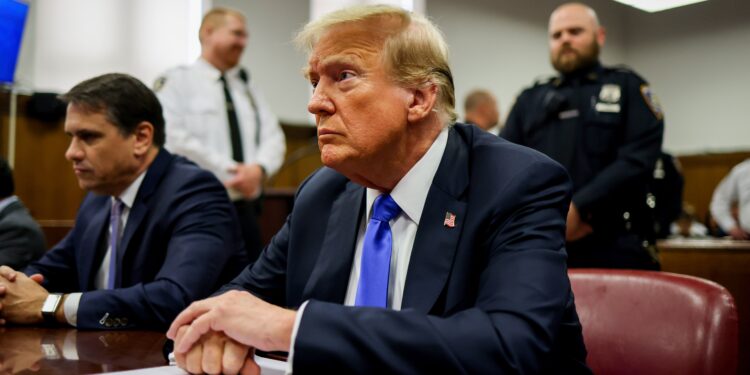Attorneys representing Donald Trump are attempting to argue that President Joe Biden’s decision to pardon his son, Hunter, provides grounds to overturn all 34 felony guilty verdicts against Trump in his hush money case in New York.
“President Biden claimed that his son was ‘selectively, and unfairly, prosecuted’ and ‘received different treatment,’” Trump’s legal team stated in a public filing released on Tuesday. They contended that Manhattan District Attorney Alvin Bragg engaged in the very behavior that Biden criticized when Bragg’s office brought charges against Trump for misleading business records to support his 2016 presidential campaign.
Trump’s lawyers also referenced additional motives for dismissal, including a purported “overwhelming national mandate” reflected in the results of the previous month’s presidential election. Furthermore, they assert that a pending sentence would create “disruptions to the institution of the Presidency,” which they argue are unconstitutional.
This filing, submitted by Todd Blanche and Emil Bove—both selected by Trump for key roles in the Justice Department—also highlights the motion filed by Special Counsel Jack Smith to dismiss the federal election interference case. According to DOJ precedent, sitting presidents cannot face prosecution while in office.
Prior to the trial’s commencement, Trump’s defense team made multiple efforts to have the proceedings dismissed on various bases, including his status as a presidential candidate at the time. This strategy persisted even after Trump was labeled a felon. Following the Supreme Court’s decision granting former presidents considerable immunity from prosecution for “official” actions, the defense leveraged this ruling to seek the overturning of convictions, though not all offenses occurred during his presidency.
Subsequent to the election, prosecutors have not indicated any intention to accommodate the defense’s motion to dismiss. Instead, they have suggested a willingness to postpone sentencing until 2029, coinciding with the end of Trump’s second term.
Sentencing has seen several delays. Initially, it was slated for July, then moved to September, and later to late November, before being postponed indefinitely.


